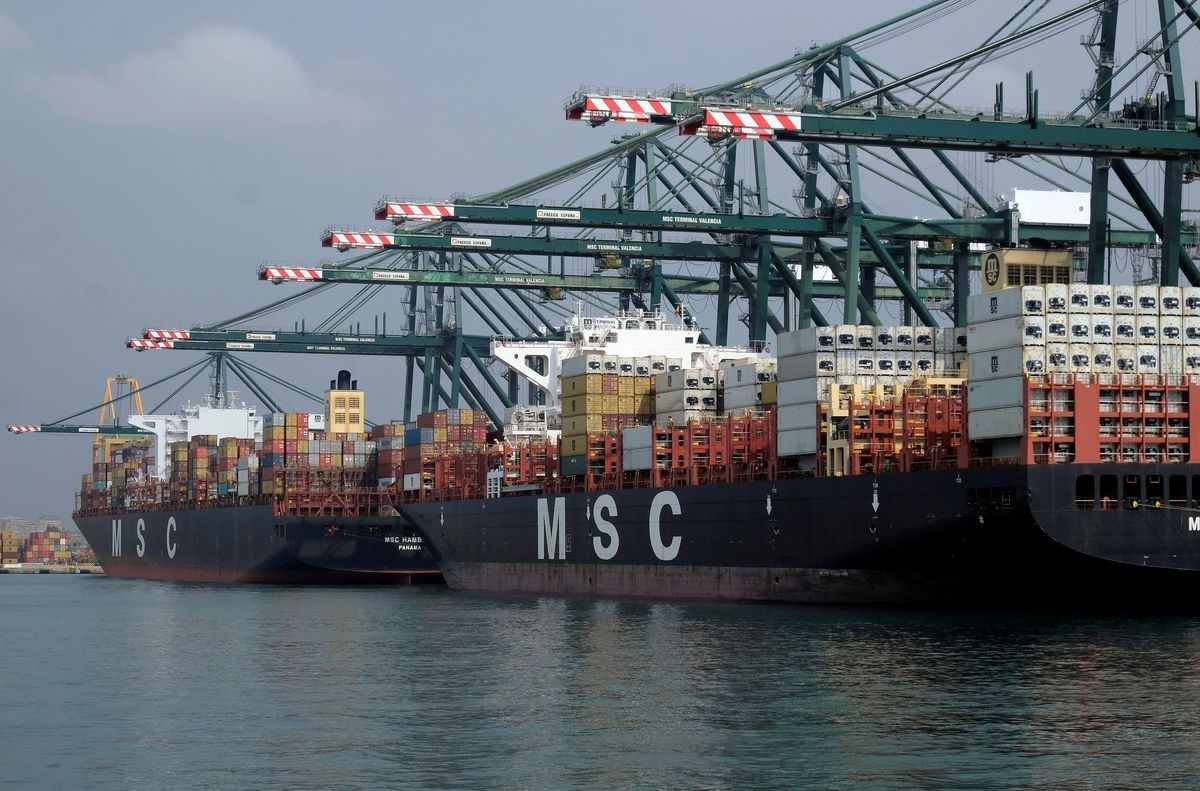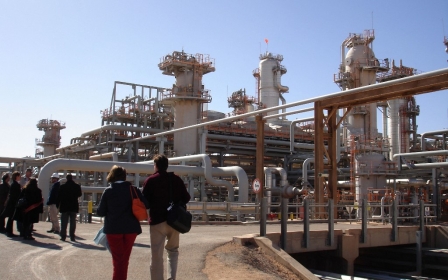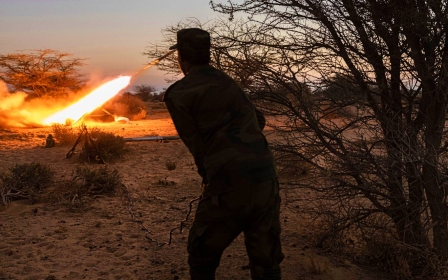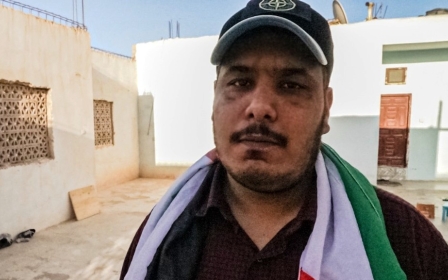Spain's Western Sahara U-turn is costing it millions in lost Algerian exports

Algerian sanctions imposed in the wake of Spain's change of position on Western Sahara have cost Madrid more than $258m in export revenue, according to the latest Spanish government data.
Spain's Ministry of Industry, Commerce and Tourism says the final cost of the fallout between the two countries might be hundreds of millions of dollars more.
In June, Algeria introduced a series of measures that would block the exchange of non-energy-related goods and services after the Spanish government of Prime Minister Pedro Sanchez abruptly announced its support for Morocco's autonomy plan for Western Sahara.
A former Spanish colony, Western Sahara is classified as a "non-self-governing territory" by the United Nations, and is the site of a decades-long conflict between Morocco and the Polisario Front, the Sahrawi independence movement supported by Algeria.
The most up-to-date trade figures released by the ministry for Spanish industry, which run up until July, two months after Algeria instituted its restrictions, reveal the increasing cost of the measure both to Algiers and Madrid.
New MEE newsletter: Jerusalem Dispatch
Sign up to get the latest insights and analysis on Israel-Palestine, alongside Turkey Unpacked and other MEE newsletters
In late July, it appeared the two sides had buried the hatchet and trade relations would resume. But there is little evidence of this as yet.
"The latest information about this subject is that there is no trade between Algeria and Spain except for gas," said one Algerian source, speaking to Middle East Eye on condition of anonymity.
'Despite several Spanish attempts, Algiers does not see Madrid as a reliable partner and is likely to endure more economic struggles as the crisis drags longer'
- Zine Ghebouli, Algeria analyst
Another source in the North African country described even talking about the economic fallout as politically fraught.
"Our relationship with Madrid is very complicated. So I'm not sure if I can comment on this," the source said.
A closer look at the industry ministry numbers reveals that Spanish exports to Algeria dropped to €28m ($27m) in July, their lowest since January 1995, when records began, and down from from €197m ($193m) in May.
Data for August and September is not yet available. However, there is little suggestion that the trading numbers will be anywhere near their pre-crisis level in May.
The Algerian government does not want to trumpet its economic sanctions against Spain, and people in the country are reluctant to speak about it.
'Algeria's economic retaliation'
Algeria hasn't interrupted its flow of gas to Spain, which brings in hundreds of millions of dollars in revenues and has been significantly boosted by higher natural gas prices as the war in Ukraine deepens.
In a bid to secure energy supplies for the winter, Spain has also been locked in a bitter negotiating process with Algerian energy producer Sonatrach.
On Thursday, both sides concluded a deal for the rest of this year, agreeing to resume negotiations in 2023 for further supplies. Some analysts believe Madrid will have to pay up to 30 percent more for its gas.
"Algeria's economic retaliation package against Madrid has made energy negotiations with Spain more difficult," said Zine Ghebouli, a postgraduate scholar at the University of Glasgow and an Algeria analyst.
Algiers suspended the 20-year-old treaty of friendship, good neighbourliness and cooperation with Madrid in June, after Spain's announcement in March of its support for Morocco's autonomy plan for Western Sahara took Algeria by surprise.
"Despite several Spanish attempts, Algiers does not see Madrid as a reliable partner and is likely to endure more economic struggles as the crisis drags longer," Ghebouli told MEE.
While the economic cost to Spanish exporters is becoming increasingly clear - and earlier this week, the country's foreign minister hinted that a "blockade" remains - the economic hit that Algerians are also taking is less well known.
"This has also impacted Algerian economic actors who depend on raw materials imported from Spain," said Ghebouli.
"The exact weight of this retaliation package on Algeria is yet to be determined, but it is true that both countries' economies continue to suffer due to political disagreement," he added.
Making an 'example' of Spain
The impact of trade sanctions against Spain on Algeria has been softened by a flurry of lucrative gas deals, as European nations look to diversify supplies away from Russia.
But while Egypt is increasing its gas production and exports, Algeria is unlikely this year to ship more than it did in 2021, when exports totalled around 55bn cubic metres (bcm).
Other side-effects of the sanctions are likely to become evident. "The impact could be seen in the scarcity of raw materials that subsequently led to a scarcity of food and industrial materials and which could be observed in the closure of several Algerian small businesses," said Ghebouli.
Even as the Russian-Ukrainian war rages on, Spain has turned to Moscow for more gas as Algeria increasingly favours other European nations - particularly Italy - as a destination for its exports.
The US, and even Nigeria, have also stepped in to make up for Spain's shortfall.
The Algerian Economic Weekly recently boasted that "the Iberian Peninsula not only regrets not being able to benefit from additional volumes of gas, of which the country's economic machines expressly need, but is also preparing to pay a substantial bill to Sonatrach".
Ordinary Algerian businesses, however, have been left in limbo following the spat between the two countries.
"The other issue is that, despite the suspension of the friendship treaty, Algerian authorities did not issue new directives for businesses impacted which keeps the whole situation in a blurry and stagnated mode," said Ghebouli.
This article is available in French on Middle East Eye French edition.
Middle East Eye delivers independent and unrivalled coverage and analysis of the Middle East, North Africa and beyond. To learn more about republishing this content and the associated fees, please fill out this form. More about MEE can be found here.




